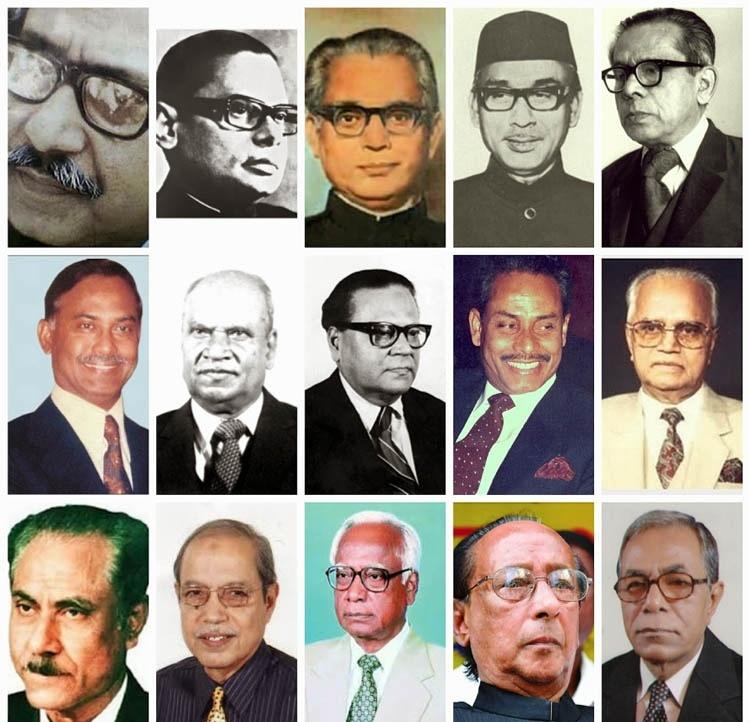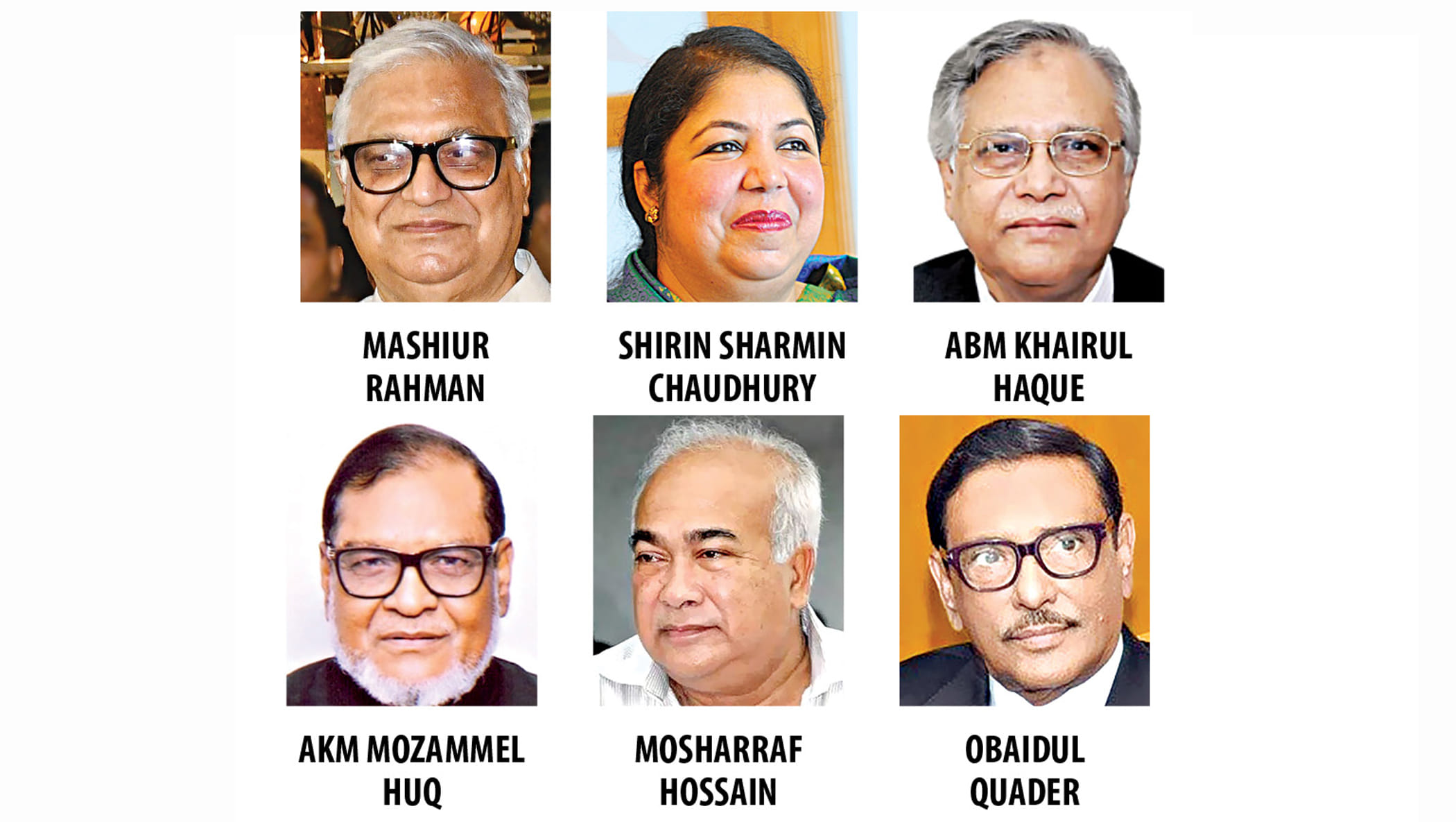Mohammed Shahabuddin is the President of Bangladesh. He is a renowned figure in the country and has a rich educational background, having studied at the University of Rajshahi and Govt.
Edward College in Pabna. Mohammed Shahabuddin, the current President of Bangladesh, holds a significant position in the country’s political landscape. With a strong educational background, including his studies at the University of Rajshahi and Govt. Edward College in Pabna, President Shahabuddin brings a wealth of knowledge and experience to his role.
As the leader of Bangladesh, he is responsible for guiding the nation and representing the interests of its people. In this blog, we will explore the journey and accomplishments of President Mohammed Shahabuddin, shedding light on his contributions to the development and progress of Bangladesh.
Introduction To The Presidents Of Bangladesh
Bangladesh, a country in South Asia, has a rich political history marked by the leadership of various Presidents who have played significant roles in shaping the nation. The Presidents of Bangladesh have held pivotal positions in governance, contributing to the development and progress of the country. In this article, we delve into the historical context and the role of the Presidents in governance.
Historical Context
The history of the Presidents of Bangladesh dates back to the country’s independence from Pakistan in 1971. Since then, Bangladesh has witnessed the leadership of several Presidents who have navigated the nation through various political and socio-economic challenges. Understanding the historical context provides valuable insights into the evolution of the presidential role and its impact on the country’s trajectory.
The Role In Governance
The Presidents of Bangladesh have played a crucial role in governance, with responsibilities encompassing upholding the constitution, representing the nation, and ensuring the smooth functioning of the government. Their influence extends to areas such as foreign policy, national security, and socio-economic development, making their role integral to the country’s progress. By examining the role of the Presidents in governance, we gain a comprehensive understanding of their contributions to the nation’s development.

Credit: www.tbsnews.net
Sheikh Mujibur Rahman: The Founding Father
Sheikh Mujibur Rahman, also known as the “Father of the Nation” and “Bangabandhu” was the first President of Bangladesh. His leadership played a pivotal role in the country’s independence and he is revered as the founding father.
Early Life And Political Rise
Sheikh Mujibur Rahman, the founding father of Bangladesh, was born on March 17, 1920, in Tungipara, a small village in the Gopalganj district of British India. Growing up in a politically volatile environment, Sheikh Mujibur Rahman was deeply influenced by the struggle for independence and social justice.
His journey into politics began during his student years when he became involved in various social and political movements, advocating for the rights of the Bengali people. His unwavering commitment and leadership skills propelled him into the forefront of the independence movement, earning him the title “Bangabandhu,” which translates to “Friend of Bengalis.”
Legacy And Impact
Sheikh Mujibur Rahman’s legacy is indelibly woven into the fabric of Bangladesh’s history and identity. His vision and tireless efforts culminated in the emergence of Bangladesh as an independent nation in 1971. As the first President of Bangladesh, he played a pivotal role in shaping the nation’s destiny and laying the foundations for a democratic and sovereign Bangladesh.
His impact reverberates through the annals of Bangladesh’s history, inspiring generations to come. The principles of equality, justice, and freedom that he championed continue to guide the nation toward progress and prosperity.
Successors And Political Evolution
The political evolution of Bangladesh has seen several successors to the presidency since its independence. The list of Presidents of Bangladesh includes prominent figures such as Sheikh Mujibur Rahman, the country’s first President and widely regarded as the “Father of the Nation.
” The presidency has played a crucial role in shaping the nation’s history and governance.
From Ziaur Rahman To Ershad
The succession of presidents in Bangladesh has been marked by significant political and social changes. From the first president, Sheikh Mujibur Rahman, who was also known as the “Father of the Nation,” to the current president, Abdul Hamid, each leader has played a unique role in shaping the country’s political landscape. However, the period between 1975 and 1991 saw a significant evolution in the country’s political scene.Democracy And Military Influence
During this period, Bangladesh experienced a mixture of democracy and military rule. The first military coup in the country took place in 1975, which resulted in the assassination of Sheikh Mujibur Rahman and most of his family members. Ziaur Rahman, a former army chief, assumed power after the coup and went on to serve as the country’s president from 1977 until his assassination in 1981. Following Ziaur Rahman’s death, his vice president, Abdus Sattar, became the next president of Bangladesh. However, his presidency was short-lived, as he was overthrown in a military coup led by General Hussain Muhammad Ershad in 1982. Ershad ruled the country as a military dictator until 1990, when he was forced to step down due to public protests and pressure from the international community.Political Evolution
The end of Ershad’s regime marked the beginning of a new era in Bangladesh’s political history. The country shifted towards a more democratic form of government, with the adoption of a new constitution in 1991. Since then, Bangladesh has held several free and fair elections, and the country’s political scene has become more diverse and inclusive. In conclusion, the succession of presidents in Bangladesh has been marked by significant political and social changes. From the military rule of Ziaur Rahman and Hussain Muhammad Ershad to the country’s current democratic form of government, each president has played a unique role in shaping Bangladesh’s political landscape.Modern Era Presidents
In the modern era, the role of the President of Bangladesh has shifted towards a more ceremonial position. While the President still holds significant symbolic importance, their executive powers have been reduced over time. Let’s take a closer look at this shift and the recent presidents who have made notable contributions to the country.
Shift Towards Ceremonial Role
In recent years, the President of Bangladesh has transitioned towards a more ceremonial role, with the majority of executive powers being vested in the office of the Prime Minister. This shift was aimed at ensuring a more effective governance structure and streamlining decision-making processes. The President now primarily represents the country in international affairs and acts as a unifying figure for the nation.
Recent Presidents And Their Contributions
Since the shift towards a ceremonial role, several presidents have held office and made significant contributions to Bangladesh. Let’s explore some of these notable figures:
- Sheikh Mujibur Rahman: Sheikh Mujibur Rahman, also known as the “Father of the Nation,” served as the first President of Bangladesh. His leadership played a crucial role in the country’s struggle for independence from Pakistan. Rahman’s contributions to Bangladesh’s liberation movement and his efforts to establish a democratic and inclusive society are widely recognized and celebrated.
- Ziaur Rahman: Ziaur Rahman, the former President of Bangladesh, served from 1977 until his assassination in 1981. During his presidency, Rahman implemented various economic and social reforms aimed at promoting development and improving the lives of the people. He is also known for his role in founding the Bangladesh Nationalist Party (BNP), one of the major political parties in the country.
- Hussain Muhammad Ershad: Hussain Muhammad Ershad held the presidency from 1983 to 1990. His tenure witnessed significant infrastructural development and economic reforms. Ershad’s administration focused on modernizing Bangladesh’s industries and improving the country’s infrastructure, including transportation and telecommunications.
These are just a few examples of the recent presidents who have made noteworthy contributions to Bangladesh. Each of them has played a unique role in shaping the country’s political landscape and driving its progress.
Presidential Elections: Process And Challenges
The process of presidential elections in Bangladesh involves significant challenges. The list of Presidents of Bangladesh includes notable leaders such as Sheikh Mujibur Rahman, the first President and “Father of the Nation”, who played a pivotal role in the country’s history.
The role of the President in Bangladesh is integral to the nation’s governance and development.
Electoral System
In Bangladesh, the President is elected by an electoral college, which consists of members of Parliament and members of local government bodies. The President is elected for a term of five years, and can serve a maximum of two terms. The electoral process is governed by the Constitution of Bangladesh and the Presidential Election Rules.Notable Elections And Controversies
The Presidential elections in Bangladesh have been marked by controversies and allegations of irregularities. In 2002, the opposition parties boycotted the Presidential elections, which were won by the incumbent President, AQM Badruddoza Chowdhury. In 2009, the main opposition party, the Bangladesh Awami League, boycotted the elections, alleging that the ruling party had rigged the elections.Challenges In Ensuring Free And Fair Elections
One of the main challenges in ensuring free and fair elections in Bangladesh is the lack of a level playing field. The ruling party has been accused of using state resources to influence the outcome of elections, and of intimidating opposition candidates and supporters. The Election Commission has also been criticized for its perceived bias towards the ruling party. To address these challenges, there have been calls for electoral reforms, including the establishment of an independent Election Commission, the use of electronic voting machines, and the introduction of a proportional representation system. In conclusion, the Presidential elections in Bangladesh have been marked by controversies and challenges. However, efforts are being made to improve the electoral system and ensure free and fair elections in the future.Significant Presidential Decrees And Policies
The President of Bangladesh has implemented significant presidential decrees and policies that have had a substantial impact on the country. These measures have shaped the direction of Bangladesh and influenced various aspects of governance and development.
Significant Presidential Decrees and Policies are crucial in shaping the political, social, and economic landscape of a country. In Bangladesh, the President holds a symbolic position, but their decrees and policies have a significant impact on the nation. Here, we will discuss some of the most notable Presidential decrees and policies in Bangladesh, including their economic reforms and foreign policy shifts.Economic Reforms
Bangladesh has made significant strides in economic development over the past few decades, and the Presidential decrees and policies have played a vital role in shaping the country’s economic landscape. One of the most notable economic reforms implemented by the President was the introduction of the “Digital Bangladesh” initiative, which aimed to digitize the country’s economy and promote the use of technology in all sectors. The initiative has been successful in bringing about economic growth, increasing foreign investment, and improving the living standards of the people.Foreign Policy Shifts
The President of Bangladesh has also played a significant role in shaping the country’s foreign policy. In recent years, Bangladesh has shifted its focus towards building stronger ties with its neighbors and increasing its influence in the international community. The President’s policies have helped in strengthening ties with countries like India, China, and Japan, and have also led to increased foreign aid and investment in the country. In conclusion, the Presidential decrees and policies have played a crucial role in shaping the economic and foreign policy landscape of Bangladesh. The country has made significant strides in economic development and foreign relations, and the President’s initiatives have been instrumental in bringing about these changes.Controversies And Criticisms
Every political leader faces controversies and criticisms during their tenure, and the President of Bangladesh is no exception. Let’s take a look at some of the major controversies and criticisms surrounding the position.
Political Scandals
Political scandals have often plagued the Presidents of Bangladesh, causing public outrage and undermining their credibility. These scandals range from corruption allegations to misuse of power, creating a sense of mistrust among the citizens. One such scandal involved the misappropriation of funds intended for development projects, which led to widespread protests and demands for accountability.
Another scandal that shook the nation was the alleged involvement of a former President in money laundering activities. This revelation not only tarnished the image of the individual but also raised questions about the integrity of the entire political system.
Human Rights Issues
Human rights issues have been a subject of criticism for the Presidents of Bangladesh. Despite progress in various areas, there have been instances where the government has been accused of violating human rights. One such example is the alleged suppression of freedom of speech and expression, with journalists and activists facing intimidation and censorship.
In addition, the treatment of minority groups has also come under scrutiny. Reports of discrimination, persecution, and violence against religious and ethnic minorities have raised concerns both domestically and internationally. These issues have put the President in the spotlight, with demands for greater protection of human rights and equality for all citizens.
It is important for the President of Bangladesh to address these controversies and criticisms seriously, taking appropriate actions to restore public trust and ensure the protection of human rights. Only through transparency, accountability, and a commitment to upholding democratic values can the President overcome these challenges and lead the nation towards a brighter future.

Credit: twitter.com
Legacy And Future Prospects
The legacy and future prospects of the President of Bangladesh can be explored through the comprehensive list of presidents that have served the country since its independence. From Sheikh Mujibur Rahman, the first President known as the “Father of the Nation,” to the current President, the list showcases the leaders who have shaped Bangladesh’s history and continue to shape its future.
Impact On Bangladesh’s Development
Since its independence in 1971, Bangladesh has had a total of 14 presidents, each with their own unique contributions to the country’s development. One of the most notable presidents in recent history is Sheikh Hasina, who has been in office since 2009. Under her leadership, Bangladesh has made significant progress in areas such as economic growth, poverty reduction, and women’s empowerment. Her government has implemented various development programs aimed at improving infrastructure, education, and healthcare, among other things. As a result, Bangladesh has become one of the fastest-growing economies in the world, with a GDP growth rate of over 7% in recent years.The Road Ahead
Despite the progress made in recent years, Bangladesh still faces a number of challenges. One of the biggest challenges is climate change, which has the potential to severely impact the country’s economy and infrastructure. Other challenges include political instability, corruption, and income inequality. To address these challenges, the government must continue to prioritize development programs that promote sustainable growth and address the needs of marginalized communities. This will require a collaborative effort from all sectors of society, including the government, civil society, and private sector.Ensuring A Bright Future
Despite the challenges ahead, Bangladesh has the potential to continue its upward trajectory and become a leading nation in the region. To ensure a bright future for the country, it is important for the government to prioritize investments in areas such as education, healthcare, and infrastructure. This will not only create more opportunities for the people of Bangladesh but also attract foreign investment and promote economic growth. Additionally, the government must continue to address issues such as corruption and income inequality to ensure that the benefits of development are shared equitably across society. With the right policies and investments, Bangladesh can become a shining example of sustainable development for the rest of the world.
Credit: www.thedailystar.net
Frequently Asked Questions
How Many Presidents Have Been In Bangladesh?
Bangladesh has had a total of 14 presidents since its independence. Sheikh Mujibur Rahman was the first president and is also known as the “Father of the Nation. “
Who Was Bangladesh’s First President?
The first President of Bangladesh was Sheikh Mujibur Rahman, also known as the “Father of the Nation” and “Bangabandhu”. He approved the National Monument at Savar, which is a symbol of Bangladesh’s independence.
Who Is The Head Of Bangladesh?
The head of Bangladesh is President Mohammed Abdul Hamid.
Who Is The First Pm In Bangladesh?
The first Prime Minister of Bangladesh was Tajuddin Ahmad. He served from 1972 to 1975.
Conclusion
To conclude, the President of Bangladesh holds a significant position in the country’s governance. From Sheikh Mujibur Rahman, known as the “Father of the Nation,” to the current president, the role has evolved over the years. With a rich history and contributions from each president, the list showcases the leaders who have guided Bangladesh through its journey of progress and development.
Understanding the list of presidents helps in gaining insights into the political landscape and the individuals who have shaped the nation.


